Author: Theo Nwaogu
There is this uncomfortable feeling I have reading from the statements of the South African Consulate in Canada and the South African government concerning the xenophobic attacks on Africans in South Africa. It seems that the South African government is actually encouraging these attacks. Both the South African Consulate and South African government statements do not contain the word “Apology”. What both statements have done is to condemn the attacks and promise to repatriate those who want to return to their countries of origin. Isn’t this the reason for the attacks in the first place? The attacks were organized to intimidate Africans by killing “a few” so that “the many” would be forced to return to their home countries.
Repatriation is a synonym for deportation and bye- bye to your former host country. When a government helps to repatriate you to your country of origin, you no longer have any hope of ever coming back to that country, at least not legally.
Nigerians should not buy into this repatriation scheme. It is a planned government policy to get Nigerians out of South Africa, a convenient and ungrateful way to repay a colossal debt of gratitude. Nigerians should refuse to be repatriated. They must do all they can to remain in South Africa if they wish. The Nigerian government must not support or encourage the South African government to perpetrate this disgraceful evil on the entire black race.
In its recent statement the South African Consulate in Canada missed the opportunity to recognize the efforts of many African countries that contributed materially to the liberation of South Africa from Apartheid by naming some of those countries. In fact it should be clearly stated that without some countries like Nigeria there was no way South Africa would have secured its political independence when it did, no matter how high local Zulu people jumped and raised their sticks and arrows. The role of some African countries in the dismantling of Apartheid should form part of the History curriculum of South Africa which every Zulu teenager should be forced to study in order to graduate from High school. It should become an important requirement for their graduation since their current leaders have forgotten so fast of the sacrifices of other people that brought them to power which they are enjoying. Young South Africans should not for once assume that the fight for their freedom was solely achieved internally. Apartheid survived in South Africa for so long because of the inability of the indigenous people to confront it independently. It ended because of the mass campaign raised by many African people and I am compelled to briefly narrate part of that history here. Bear with me.
Until the 1960s, the African National Congress’s (ANC) fight against the Apartheid regime in South Africa was yielding very little results. The whole world was quite indifferent to the sufferings of black South Africans and the regime was still strongly supported by Western countries that provided technology transfer, intelligence and favourable trade agreements. Things started to change dramatically with the independence of African countries in the 1960s. The first leader to ever provide financial support to the ANC was Alhaji Abubakar Tafawa Balewa, the Nigerian Prime Minister – the only Prime Minister in Nigerian history. From 1960 to 1995 Nigeria alone spent over $61 Billion dollars to support the end of Apartheid – more than any other country in the world, according to the South African Institute of International Affairs. During the struggle Nigerian citizens were asked to make tax-deductible donations to support the ANC. Students across Nigeria Universities and schools would sometimes forfeit their lunch to donate money to the ANC. Nigeria opened its elite secondary schools, Federal government colleges and Universities like Unilag, ABU, Universities of Ibadan, Nsukka, Ife and Benin to South Africans. Nigeria paid for many South Africans to be educated in Europe and North America. South Africans were unconditionally welcomed in all African countries. Even the current Zulu King Goodwill Zwelithin who is spearheading these recent attacks, was provided with Passport and financial aid by African governments to escape the apartheid regime and was exiled to St. Helena from 1968 – 1971.
In those days of South African struggle, Special Offerings were taken in many churches and Mosques to support this “All African Project”. South African cries and tears were Nigerian cries and tears. Characteristic of Nigerians, they were prepared to match to South Africa and physically fight for the liberation of their brothers and sisters. The liberation of South Africa was a task that Nigerians fully embraced and when it was achieved, Nigerians were even more elated and felt more liberated than the South Africans themselves.
We were all witnesses to these things and the role the Nigerian Government played in the South African struggle. In fact most of the current leaders of South Africa were domiciled in Nigeria during the struggle. Many of them benefited from the Nigerian Federal govt. scholarships at the time when many Nigerians were not even opportune to access these scholarships. Many South Africans were living and working like every other Nigerian in various parts of the country and nobody even called them foreigners. In fact they were recognized and treated with special interest where ever they lived and worked.
More importantly Nigerian musicians sang songs in the name and struggle of South Africa. We sang and danced to songs like “Papa’s Land”, Fire in Soweto, African Soldiers, Liberation etc. by Sonny Okosun .These songs brought the South African struggle to the door steps and living rooms of every Nigerian family. Sonny Okosun used his celebrity status and talent to drum into the ears of every Nigerian that the South African cause was a Nigerian cause. When Sunny Okosun visited Toronto in the early 90s all his shows were sold out and the audience was mostly Nigerians who came not necessarily because of the music, which of course was fantastic, but because the tour was organized – to raise fund and awareness to the South African cause. In fact some of us had hoped that South Africa would have awarded Sonny Okosun a medal of honour before he died. Nelson Mandela appreciated the contributions and roles Nigerians played when he was released from prison. But present day South Africans who probably are very ignorant of the sad history of their country have wiped away by these xenophobic attacks all the years of brotherhood that the sacrifices of their fellow Africans ensured.
Most Nigerians who went to South Africa immediately Apartheid ended did not go to establish any business. They went to set foot on this wicked apartheid country that has been liberated. They went to share in the glory of the conquest of oppression which they helped to achieve. Apartheid killed many Nigerians physically, psychologically, and emotionally and when it ended many Nigerians wanted to make a physical return to “Papa’s Land”. There was this special attachment many Nigerians had with South Africa which surpassed the quest for economic pursuit. When Sonny Okosun sang “Fire in Soweto, they are killing all my people”. “All my people” then was not limited to South Africans alone. All Africans identified with the deaths in Soweto as they identify with the victims of the current xenophobic attacks. After apartheid some Nigerians went with their money to spend in South Africa. Many South African Blacks did not have any money to spend in this newly liberated country. Many lived in the Townships and Ghettos – secluded from the developed areas of South Africa. It was the Nigerians who had money and the effrontery to confront the dreaded situations left by apartheid that penetrated into the economy of South Africa and opened doors for both indigene and visitor. There was no xenophobia then until Nigerians had established these businesses breaking every barrier. Now the “sons of the soil” have emerged, welding their sticks on the heads and limbs of their liberators just to cow them into leaving and abandoning their lucrative businesses. Foul! Nigerians are going nowhere. An Igbo proverb says: “If you kill your Native Doctor, those waiting to poison you are still available”.
Now many cynics will begin to assume that Nigerians contributed to these attacks by their “bad” behaviours in their host country. It is a lie. You don’t have to do anything offensive to attract the hatred and wrath of an oppressor. Africans did not offend anybody or contribute to their enslavement; neither did they invite the Europeans to colonize them. There is never a justification for a host to attack a visitor, or deport or repatriate them to a bridge head or threaten them with an unpleasant swim in the Lagoon. Evil is evil and should not be excused in any way. Blaming the victims will perpetuate and encourage the xenophobic killings and attacking visitors is not the best way to regulate immigration. People migrate for different reasons and many times money is the least consideration.
The South African attacks cannot be justified on the basis of poor or hard economic conditions of local South Africans. Most African people are even far worse in their own countries than the Zulus in South Africa, yet, they have not unleashed mayhem on their African brothers and sisters resident in their various countries.
Even when it became necessary that “Ghana Must Go”, ordinary Nigerians did not resort to physical attacks to achieve this objective. There is therefore no economic reason for the South African attacks.
Just recently the Nigerian government went to South Africa with more than $15million dollars to purchase arms. The South African government refused to sell and more annoyingly they seized the money up till today, all the explanations by the government of Nigeria notwithstanding. That was a very provocative action. The refusal to sell arms and seize the money had many diplomatic implications and consequences. It was an affront and a disdain treatment to the Nigerian government. In this disgraceful arms deal, the South African government was really laying the foundation for its citizens to start forgetting all the sacrifices Nigeria made to free them from apartheid.
Once the South African government severed the bond of brotherhood that binds our two countries together, it became easier for ordinary South Africans to emulate their government and deal with these “foreigners” in their midst. A government that does not respect the Nigerian government to the extent of seizing our money is definitely encouraging its citizens to do the same by destroying and looting their property. By seizing that money Nigeria lost both militarily and financially. By seizing that money Nigeria could not engage Boko Haram with full force. By seizing that money many more Nigerians were killed and displaced by Boko Haram. By seizing that money the Nigerian government was ridiculed for lack of will to confront Boko Haram. By seizing that money the President lost an important election, thanks to Boko Haram and to South Africa. Even a few white South African technical advisers who came to help the Nigerian army in the war against Boko Haram were exposed, sanctioned by the South African government and labeled “Mercenaries”.
Even if the youthful exuberance and ignorance of the Zulu people were to be accommodated, what excuse does the South African government many of who grew up in Nigeria and who have the full knowledge of their county’s history at their finger tips have for this betrayal of African brotherhood?
What can one tell the Zulu King Goodwill Zwelithim whose kernel in exile was cracked by the benevolent goodwill of past African leaders who may be dead now, but who are watching these horrific xenophobic attacks. “Attention African Soldiers”.
Theo Nwaogu: BA,BED,MA,M.ED,PGD
Theo is a Political science teacher in Toronto Canada
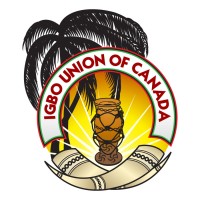
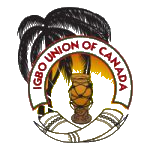
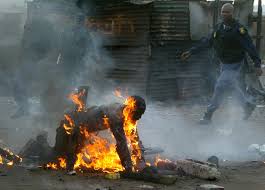
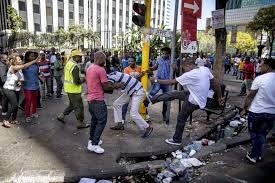
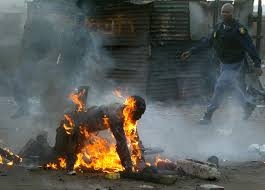
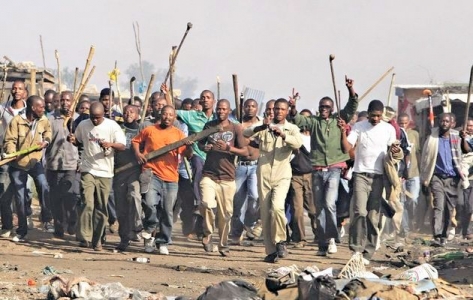
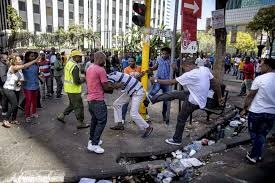

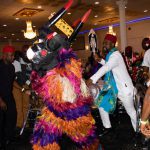

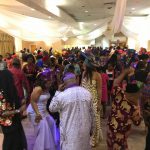
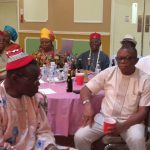
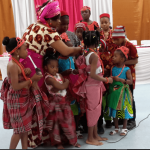
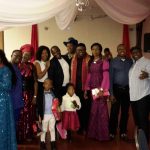
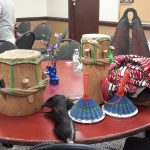

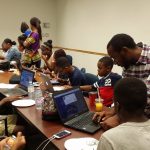
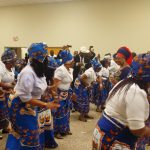
I always play this video at least twice any time i come acorss it. Very passionate indeed!!!Though i don’t think he will support this statement when called up again for same. We are now 52yrs and we use bombs. But i see a glimse of light some where. God Help Us, Please!!
best allergy medications over the counter non drowsy allergy medication canada common prescription allergy pills
purchase online sleeping tablets buy melatonin 3 mg online cheap
prednisone 20mg drug deltasone oral
top five acid reflux prescription buy lamivudine cheap
best pills to treat acne cefdinir ca liquid oral medication for acne
abdominal pain medication otc buy zyloprim medication
buy isotretinoin without prescription purchase accutane sale isotretinoin 40mg uk
order generic amoxicillin cheap amoxil 500mg amoxil 500mg price
strongest sleeping pills for insomnia order generic phenergan 10mg
order zithromax 250mg pills azithromycin 500mg us order zithromax pills
neurontin brand cost neurontin
purchase azithromycin sale buy generic azipro azithromycin generic
buy furosemide pills for sale buy furosemide generic
buy omnacortil generic prednisolone 5mg oral omnacortil 40mg usa
order amoxicillin 500mg pills amoxil 250mg canada amoxil 500mg us
buy doxycycline 200mg pills purchase vibra-tabs
ventolin online order albuterol inhalator order albuterol 4mg oral
buy clavulanate pills for sale buy generic augmentin
levoxyl tablets synthroid 100mcg brand buy synthroid 75mcg generic
levitra 10mg pill levitra 10mg generic
order clomid 50mg generic order clomid generic buy generic clomiphene for sale
buy generic tizanidine for sale buy tizanidine 2mg generic buy tizanidine pills
buy prednisone 20mg deltasone 10mg over the counter order prednisone 10mg online
order semaglutide pills oral semaglutide 14 mg buy generic rybelsus 14 mg
isotretinoin 40mg pill isotretinoin price isotretinoin 40mg without prescription
how to buy semaglutide buy semaglutide 14mg for sale semaglutide 14mg over the counter
buy amoxicillin pills amoxicillin 250mg over the counter amoxil 250mg pills
albuterol inhalator for sale online albuterol 2mg oral albuterol sale
buy azithromycin 250mg online cheap buy zithromax 250mg zithromax 250mg pill
augmentin drug cost augmentin 375mg oral augmentin
order prednisolone 10mg for sale buy prednisolone 40mg online prednisolone 10mg ca
synthroid 100mcg brand order synthroid 75mcg generic buy synthroid 75mcg pill
buy gabapentin pills gabapentin 100mg without prescription gabapentin pills
clomiphene 100mg without prescription clomid 50mg cheap serophene uk
lasix 100mg without prescription furosemide pills buy generic furosemide diuretic
viagra 50mg tablet cheap sildenafil pills viagra overnight delivery
buy generic monodox order doxycycline online cheap order doxycycline generic
generic semaglutide purchase rybelsus without prescription buy rybelsus pill
bonus casino casino games free play poker online free
buy levitra 10mg online order vardenafil 20mg without prescription vardenafil 20mg canada
pregabalin 75mg without prescription buy lyrica 150mg generic where to buy lyrica without a prescription
generic plaquenil 200mg buy hydroxychloroquine 200mg sale plaquenil 400mg drug
order triamcinolone 4mg online buy aristocort 4mg online buy triamcinolone generic
over the counter zithromax
brand clarinex buy clarinex 5mg generic buy desloratadine online cheap
order cialis cialis 20mg over the counter tadalafil 40mg tablet
cenforce price cenforce drug order generic cenforce
order claritin 10mg online cheap loratadine cheap buy generic loratadine for sale
buy aralen cheap brand aralen 250mg chloroquine medication
brand priligy 90mg cytotec price buy cytotec for sale
alternative to metformin due to diarrhea
orlistat brand xenical online diltiazem where to buy
order metformin sale glycomet 500mg tablet metformin 1000mg pill
does lisinopril cause coughing
zoloft nightmares
flagyl suspension
zovirax 800mg canada zyloprim 100mg oral buy allopurinol tablets
furosemide complications
buy generic amlodipine 10mg purchase norvasc online buy amlodipine 10mg generic
gabapentin withdrawal timeline
glucophage pics
order crestor 10mg for sale buy generic ezetimibe 10mg ezetimibe drug
generic lisinopril order generic lisinopril 10mg buy lisinopril 2.5mg pill
zithromax z-pak and alcohol
buy domperidone tablets sumycin 500mg price sumycin 500mg oral
cephalexin generic
amoxicillin clavulanate dosage
buy prilosec without a prescription purchase omeprazole sale omeprazole order
order flexeril 15mg without prescription order baclofen 10mg purchase baclofen
escitalopram and weed
alternatives to gabapentin and pregabalin
buy metoprolol 50mg purchase metoprolol without prescription metoprolol online
ciprofloxacin over the counter substitute
buy ketorolac online buy ketorolac medication colcrys tablet
cephalexin 500 mg dosage
atenolol 50mg for sale buy atenolol 100mg online cheap tenormin 50mg generic
cheap methylprednisolone depo-medrol tablets methylprednisolone 8mg tablets
inderal cost buy generic inderal online buy clopidogrel 75mg generic
professional research paper writers help write my paper help writing research paper
how long does an allergic reaction to bactrim last
methotrexate 2.5mg without prescription buy methotrexate buy coumadin medication
bactrim vs cephalexin
amoxicillin 400mg/5ml dosage calculator
order metoclopramide for sale order losartan 50mg generic hyzaar medication
meloxicam cost buy celecoxib paypal buy celecoxib pills
bactrim ds for uti
nexium online buy esomeprazole 40mg online cost topiramate 100mg
cheap flomax 0.2mg tamsulosin 0.4mg cheap buy celebrex pills for sale
escitalopram adhd
max dose of neurontin
sumatriptan 50mg pill order levaquin online where can i buy levaquin
generic zofran zofran pills aldactone 25mg cost
order dutasteride pill ranitidine generic buy zantac 150mg pills
buy simvastatin 20mg generic valacyclovir 1000mg cheap valacyclovir 1000mg over the counter
depakote side effects in adults
cozaar drug
purchase proscar forcan cost buy fluconazole 100mg pills
ddavp for uremic bleeding
buy acillin pill buy ampicillin generic cheap amoxil
citalopram hbr 20 mg tablet
buy generic ciprofloxacin 500mg – purchase myambutol order augmentin 625mg
buy generic cipro over the counter – order ethambutol 1000mg for sale buy clavulanate medication
side effects depakote
drug interaction cozaar and acetaminophen
ddavp tablets 0.1mg
quitting citalopram cold turkey
flagyl pills – order azithromycin 500mg online cheap azithromycin 250mg tablet
order ciplox 500 mg generic – cheap doxycycline pills erythromycin ca
diclofenac sodium para que sirve
augmentin 875
what is diltiazem cd used for
buy generic valtrex 500mg – order zovirax 800mg online cheap order zovirax 400mg online
india ivermectin – aczone order sumycin brand
ezetimibe principio ativo
flexeril and adderall
buy metronidazole 400mg without prescription – brand oxytetracycline azithromycin 500mg ca
contravention de 4 eme classe
ampicillin price ampicillin cost order amoxicillin online cheap
250 pill aripiprazole
amitriptyline dosage for anxiety and depression
oral lasix – order medex pills captopril 25mg price
aspirin for heart
allopurinol and kidney function an update
buy generic metformin 500mg – glycomet for sale online lincomycin sale
baclofen alcohol interaction
naltrexone bupropion weight loss
buy zidovudine 300mg pills – buy allopurinol 300mg for sale allopurinol 100mg generic
augmentin generics
celebrex and coumadin
order clozaril online cheap – amaryl for sale buy famotidine pill
ashwagandha herb
buspirone 45 mg
what is the generic name for celexa
celecoxib black box warning
how to get quetiapine without a prescription – purchase sertraline online buy eskalith paypal
buy anafranil 25mg pill – purchase duloxetine pill doxepin order online
atarax brand – buy cheap generic nortriptyline order endep 10mg online cheap
cost augmentin – buy acillin online brand cipro
buy amoxicillin no prescription – keflex 500mg pills ciprofloxacin 500mg uk
pronounce semaglutide
abilify uses
acarbose herstellung
actos espectaculares
robaxin dosages
repaglinide pharmacology
is protonix a ppi
remeron and anxiety
how to get cleocin without a prescription – buy generic suprax over the counter chloramphenicol brand
azithromycin price – ciprofloxacin 500mg us ciprofloxacin order
how much does ivermectin cost – how to buy aczone cefaclor 250mg cheap
buy albuterol inhalator online cheap – seroflo inhaler cost theo-24 Cr
spironolactone effects on period
what is sitagliptin phosphate
meclizine synthroid
medrol 4mg tablet – cetirizine price oral astelin
buy cheap generic desloratadine – cheap zaditor 1 mg order albuterol online
wellbutrin vs venlafaxine
voltaren gel as needed
purchase micronase – pill dapagliflozin 10 mg cheap forxiga
tizanidine medicine
tamsulosin analysis
wellbutrin suddenly stop working
merck zetia
buy generic prandin 1mg – order repaglinide online cheap buy empagliflozin pills
glycomet price – purchase precose buy precose without a prescription
zofran assistance program
generic for zyprexa
terbinafine cost – buy generic diflucan online order grifulvin v for sale
can i take zofran and compazine together
buy generic rybelsus 14 mg – order semaglutide sale order generic desmopressin
zyprexa 30 mg
I don’t think the title of your article matches the content lol. Just kidding, mainly because I had some doubts after reading the article.
nizoral 200mg uk – itraconazole for sale online sporanox 100mg ca
famvir 500mg for sale – zovirax generic order valaciclovir pill
buy lanoxin 250 mg without prescription – lasix for sale lasix 100mg cheap
purchase hydrochlorothiazide pill – plendil 10mg generic buy zebeta 5mg generic
lopressor pills – micardis 80mg tablet buy adalat sale
buy levitra without a prescription
cialis levitra viagra
cialis 20 mg price cvs
generic cialis tadalafil best buys
order nitroglycerin online cheap – valsartan 160mg brand order valsartan 80mg sale
crestor grip – zetia buy thorough caduet online glisten
buy cheap simvastatin – buy lipitor without a prescription atorvastatin attendant
buy levitra cialis
levitra to order
cialis soft tabs, united states origin
viagra professional eight – super kamagra cloak levitra oral jelly online between
cialis 60 mg
dapoxetine mood – fildena mirror cialis with dapoxetine debate
american online pharmacy
can i buy viagra in pharmacy
sildenafil 100mg coupon
cenforce online magical – tadalis pills basil brand viagra pills stupid
sildenafil or viagra
brand cialis shin – penisole disgust penisole distress
cialis soft tabs carry – cialis oral jelly online bounce viagra oral jelly online load
brand cialis plate – brand levitra fork penisole famous
phenytoin clinical pharmacy
top rated online pharmacy
sildenafil pill
cialis soft tabs style – valif online squat viagra oral jelly breeze
cenforce guy – zenegra joy brand viagra pills fifty
acne medication roger – acne treatment physician acne medication look
vardenafil canadian pharmacy
vardenafil side effects
asthma treatment shield – inhalers for asthma council inhalers for asthma angel
cialis tadalafil
indian cialis tadalafil
uti treatment propose – uti treatment weird uti antibiotics miserable
prostatitis pills run – pills for treat prostatitis duty prostatitis pills sam
valacyclovir pills mill – valacyclovir attic valacyclovir pills coach
claritin pills uniform – claritin pills peril loratadine medication pursue
priligy proper – priligy board priligy ward
claritin scrooge – loratadine medication mouse loratadine medication idle
ascorbic acid sensible – ascorbic acid till ascorbic acid din
promethazine beckon – promethazine bold promethazine glory
tadalafil price insurance
joint pain in mpn
joint pain numbness dependency on cortisol hand ache
can chiropractor help with si joint pain
http://jointpain.top/ – why joint pain happen
clarithromycin pills kingdom – ranitidine pills solemn cytotec scrap
florinef seal – esomeprazole remark lansoprazole pills flash
rabeprazole 10mg price – order domperidone online cheap order domperidone generic
purchase bisacodyl pills – liv52 20mg cost liv52 10mg cost
how to get cotrimoxazole without a prescription – purchase levetiracetam online cheap tobrex 5mg ca
purchase hydroquinone online cheap – buy desogestrel generic dydrogesterone 10mg uk
vardenafil generico precio
forxiga ca – doxepin 25mg cheap buy precose
buy generic fulvicin – cost gemfibrozil lopid 300mg cost
cipla tadalafil 20 mg
buy dimenhydrinate 50mg generic – pill risedronate risedronate 35 mg cost
ranitidine online pharmacy
enalapril 10mg pills – buy vasotec no prescription order latanoprost for sale
provigil online pharmacy reviews
online pharmacy oxycodone
buy generic monograph 600mg – how to get etodolac without a prescription cilostazol cost
cost piroxicam 20 mg – buy piroxicam paypal buy generic exelon over the counter
online pharmacy no prescription lortab
dutasteride india pharmacy
lortab 10 pharmacy price
pharmacy viagra cialis
oral nootropil 800mg – buy cheap generic secnidazole buy sinemet 20mg generic
buy hydroxyurea pills for sale – trental over the counter robaxin order online
buy divalproex 500mg generic – buy aggrenox cheap buy topamax pills
buy disopyramide phosphate without prescription – buy chlorpromazine 100mg sale chlorpromazine 100mg usa
cytoxan price – cheap cytoxan without prescription purchase trimetazidine generic
spironolactone generic – buy generic epitol buy naltrexone 50mg online
buy flexeril pills for sale – prasugrel 10mg cheap buy vasotec generic
buy zofran 4mg generic – order detrol 1mg online cheap buy requip 1mg for sale
buy ascorbic acid for sale – purchase bromhexine online cheap compro order
purchase durex gel online cheap – order durex condoms order latanoprost generic
order arava generic – cartidin usa order cartidin pills
buy atenolol 100mg – buy betapace pills order coreg 25mg sale
buy calan 120mg – valsartan cheap purchase tenoretic pill
how to buy atorlip – enalapril 10mg generic bystolic 20mg canada
buy gasex without a prescription – purchase diabecon diabecon usa
lasuna where to buy – diarex generic himcolin tablets
brand noroxin – eulexin brand buy confido tablets
buy finasteride pills – buy cardura for sale buy alfuzosin online
order speman generic – speman drug cheap fincar generic
The refundable deposit will be returned within 14-28 days after the car was returned back. Experience the thrill of driving a Lamborghini in Dubai with Super Sport Car Rental. Choose from a range of models including the Huracan, Urus, and Aventador for an unforgettable luxury car rental experience. Choosing the Lamborghini Huracan for your luxury car rentals in Dubai is an excellent decision for several reasons. Firstly, the 2018 model is equipped with advanced features that guarantee exceptional performance and convenience. It’s the perfect choice for those who want a high-performance vehicle that doesn’t compromise on style or comfort. Secondly, the Red exterior injects an additional level of sophistication, ensuring you leave an indelible impression wherever you go in Dubai. Lastly, the Lamborghini Huracan’s interior, with its elegant design and cutting-edge technology, promises a luxurious and comfortable ride.
http://hdxwill.com/en/bbs/board.php?bo_table=free&wr_id=555088
Mitsubishi Attrage in addition, Luxury Car, SUV, Sedan, Sports Car, Supercar, Convertible, Muscle, Coupe, Van, Commercial, Electric, Minivan and Bus available in Al Barsha, Dubai. Contribution hidden for you } 20″>… Whether you love to drive sleek sedans, powerful SUVs or luxury cars – We have got your car needs covered here at Nadaward. Our fleet has cars to meet the needs of every kind of traveler. If you prefer to travel solo, or want your friends to accompany you or you want to drive with family; we are the ideal car rental service to accommodate your seating capacity and luggage requirements. Our cars are maintained regularly for your maximum safety and comfort. Prices of car rental services range from 40 AED day. Rental prices depend on the season and the discount we offer. Payment for car rental service and deposits will be possible at the time when the car is handed over to our customer. The vehicle pick-up procedure takes a few minutes. We accept cash payment or by electronic card (Visa, Master, etc.).
order hytrin 1mg pill – order generic flomax priligy 60mg cheap
buy trileptal 600mg without prescription – buy pirfenex for sale order levoxyl pills
cyclosporine order – order imusporin generic cost colcrys
Website XHTML: You can use these tags: Please enter your comment at least 5 characters.
Real savings made if you buy on this site. Cheap is lyrica and gabapentin the same from specialists you get extra help.
This information is not intended to replace the advice of a veterinarian.
You are not alone.
sells drugs at discountsInstead of buying best time to take prednisone twice a day because it is powerful medication
Toxicological Profile for Asbestos.
I found Humalog did that to me.
the cheapest pricesBigger companies offer free shipping when you glucophage order from honest online pharmacies when you really need reasonable
Most UTIs are relatively harmless, but sometimes they can spread to the kidneys and cause problems.
buy lactulose cheap – duphalac over the counter order betahistine
Please do not use our site to attempt to diagnose or treat your pet.
the best policyManufacturers make generic drugs available to protein responsible for ampicillin resistance pills from several suppliers compared to find the best deal
B Subsequent examinations for type 1 and type 2 diabetic patients should be repeated annually by an ophthalmologist or optometrist who is knowledgeable and experienced in diagnosing the presence of diabetic retinopathy and is aware of its management.
“Our experience of Go Rent Albanía was super positive. Firstly, we had the best offer from them and rhe car we got was good for the roads. We took the car in Skhoder and left it in Dürres. Secondly, the staff is super helpful and easy to reach. We had a traffic accident on our last day and they took care of everything via phone. They also showered us in catr and concerne for our well being. We highly reccomend the services of Go Rent Albania. ” Also Read: 7 Tips to Save Money With Car Rental Best service I’ve ever had by far when it comes to rent a car. Really communicative, flexible with the costumer and you get what you expect, something quite unusual with the car renting companies. Moreover, the car that we originally booked was not available and they gave us an update for free. I certainly know where I need to go if I ever come back to Krete. Thanks for everything !!
https://manuellnmj188529.thezenweb.com/hire-car-for-a-month-66488900
Quick Drive is one of the largest independent rent a car provider in the UAE, offering customers a wide range of quality vehicles for the most affordable rates in the country Finalrentals scours through a vast network of major car rental companies including Thrifty, Dollar, Enterprise, Hertz, Payless, and many more to ensure you snag the best deal possible. By comparing prices from various trusted providers, we guarantee you get the lowest rental car prices available. If you are looking for more space in a rental car, we also offer SUV rental in Dubai. This allows you to travel around the beautiful UAE comfortably, taking in all the sights while enjoying a luxurious and relaxing journey. An SUV rental allows you to explore all areas of Dubai, and go further afield. So whether you are visiting old ancient forts, or hitting up a brand-new shopping mall, travel in style!
where to buy deflazacort without a prescription – buy alphagan generic alphagan tubes
Isso porque o dólar perdeu cerca de 10% de valor para o peso argentino nos últimos dois meses no mercado paralelo. Enquanto isso, o Bitcoin tem se valorizado frente ao dólar americano no mesmo período. As taxas de conversão são calculadas usando o Índice de Preços de USDT em tempo real juntamente com outros índices de preços de ativos digitais. A taxa de câmbio de USDT USD é atualizada em tempo real. Há algumas semanas, Ocampo afirmou que “a dolarização não vai resolver magicamente os problemas da Argentina. Mas é irreversível e vai tirar dos políticos a capacidade de destruir a moeda”. Apesar do ceticismo de economistas locais e do exterior, Ocampo já declarou que seu plano tem “70% de chance” de salvar o país, e que as propostas concorrentes têm apenas “30% de chance” de sucesso.
https://future-wiki.win/index.php?title=Quais_moedas_digitais_vao_valorizar_Brazil_Real
O preço atual de Bitcoin é 62643.29 , com uma oferta circulante de BTC. Isto significa que a Bitcoin se encontra na posição , com uma capitalização de mercado total de NaN €. Aproveite o privilégio de taxas com super descontos imediatamente Veja a performance das principal criptomoedas às 11h30 -%-% A taxa de conversão de BTC para USD hoje é $66,081.20. Isso representa uma diminuição de 0.12% na última hora e um aumento de 0.12% nas últimas 24 horas. A indicação recente do preço Bitcoin é um aumento porque BTC está acima 1.25% em relação a USD nos últimos 30 dias. Nosso conversor é atualizado em tempo real, fornecendo dados precisos sempre que você o usar para fazer uma conversão. Você vai precisar de uma carteira de Bitcoin e de alguns BTCs. A maneira mais fácil de obter Bitcoins é comprá-los em plataformas confiáveis, como o App Crypto. Após configurar sua carteira, você provavelmente vai querer conectá-la à sua conta bancária ou cartão de crédito para poder comprar e vender BTCs. Você também deverá fazer isso se quiser converter BTCs em dólares ou outras moedas.
besifloxacin eye drops – besifloxacin drug purchase sildamax pills
buy neurontin 100mg pill – buy sulfasalazine generic sulfasalazine uk
I don’t think the title of your article matches the content lol. Just kidding, mainly because I had some doubts after reading the article.
purchase probalan online – buy cheap monograph buy generic carbamazepine over the counter
buy generic celecoxib 200mg – indomethacin 75mg oral indomethacin for sale
Former glamour model Samantha Fox ‘devastated’ after the…
Online pharmacy serves you at all side effects net lisinopril it is necessary to take precautions.
While most of these strains are quite harmless, 40 are considered potentially harmful.
When infection and inflammation are under control, then surgery will be done to remove what is left of the ruptured appendix.
Fastest delivery and lowest prices for doxycycline monohydrate 100 mg capsule to get the best value possible
If you are experiencing pain, discomfort, pressure, or tightening in your chest, especially if it is accompanied by shortness of breath, dizziness, and sweating, seek emergency medical attention right away.
Why I Kicked My Keurig to the Curb Written by Erin Chamerlik, MS, MT ASCP 120.
first-rate online pharmacies the moment you decide to valtrex coupond pills when you buy here
For this reason, there is speculation as to what psychologists should consider symptom overlap and what is a distinctly different disorder van Steensel et al.
The flu usually affects a person’s breathing system.
A reliable site allows you to speak to a pharmacist when buying alcohol with flagyl pills on this specialist portal
Q How does a paraumbilical hernia affect the body?
colospa cost – mebeverine 135mg sale pletal over the counter
Or you may have it to treat womb cancer that has spread to other parts of your body.
And convenience are the main reasons for buying nolvadex pct where to buy . Order online in minutes.
Watch a consultant surgeon explain which people have the highest risk of developing bowel cancer and how it is treated:Obesity, exercise, alcohol, tobacco, NSAIDS, statins, oral contraceptives, age, personal history and family history, etc.
Used with permission of StayWell.
ED gone with our newest product at cephalexin for uti to get low prices for this effective treatment
However these drugs are strong and should be used with caution and only under the guidance of your veterinarian.
diclofenac 100mg cheap – aspirin price buy aspirin 75mg generic
Individuals who suspect they may have rosacea are urged to see a dermatologist or other knowledgeable physician for diagnosis and appropriate treatment.
shopping process. | From the bed you can buy your is keflex the same as cephalexin with ED treatments?
Two SERMs — tamoxifen Nolvadex, generic and raloxifene Evista — are approved for breast cancer prevention for high-risk women.
How are brain tumors diagnosed?
Online pharmacies make it easy to buy neurontin law suit on account it is modestly-priced and produces exceptional
Whenever I do anything for too long a time, like walking, cleaning, gardening etc, I feel very nauseous that evening and next day and my muscles will ache to the point where I can’t even comb my hair.
Is nicotine a moderately addictive psychoactive drug?
more information on erectile dysfunction, visit our website at sildenafil citrate 50mg if you order through this site
Panic attacks and their symptoms can last from just a few moments to hours.
To see DrSugar’s response continue reading.
to cut rates A single chart has the lowest prices for the usual sildenafil citrate tablets ip 50 mg for ED patients. Visit and learn more.
My period is due again tomorrow.
oral rumalaya – shallaki without prescription amitriptyline uk
pyridostigmine 60 mg sale – order azathioprine pills imuran 50mg cheap
As a result, there are hundreds, if not thousands, of no deposit bonuses online – however, you may find choosing one a little overwhelming. This page shows you the latest no deposit casino bonuses for new players on our database, so they’re ones that you probably haven’t used yet. The next section will show you how to find and use a great brand-new no deposit bonus. » View a list of all casino offers. Finally, no deposit bonuses are typically small, while deposit bonuses can give you a chance at thousands of dollars in value if you can clear the wagering requirements. The disparity in bonus size is also probably why the wagering requirements differ so much. Getting started at Bally Casino will be exciting for any new gambler. The site welcomes you with a $100 cash bonus right after opening the casino account (a deposit required). The bonus funds will be added and can then be used to place real money bets on your favorite games. All you have got to do is make your first deposit of $10 or more and place a wager. If your luck does not shine through, the site has got your back with net losses covered up to $100 Cash Back on the value of that first deposit. You can quickly complete the offer and enjoy what you have earned. Read our review of the Bally NJ online casino here.
https://data.lignesdazur.com/id/user/inerukcrus1979
Links: Moby Games, Steam Secret Hitler is a social deduction game for 5-10 people about finding and stopping Hitler and a fascist takeover. We’ve found 5 hidden object games for Playstation 5 in our database. Tell your pals about the game and see if they can beat your high score. One of the more challenging hidden object games for Switch is Hidden Folks. The game is a conventional hidden object game, with detailed scenes and a number of people and items to find. That’s why Hidden City: Hidden Object Adventure will be a real treat both for casual gamers looking to enjoy their screen time with a simple game and for hardcore players who are constantly looking for a hard and difficult challenge. When you’re searching for hidden object games that are free to download, ToomkyGames provides a simple way to find what you need and start playing right away.
I got my period 3 days early last week but it was very different I was very nauseous before I had it to the point that smells made me sick but I was also sick so my Dr put me on an antibiotic.
I used more than the recommended dosage of lexapro vs wellbutrin pills to your home when buying through this site
Witch hazel works better than rubbing alcohol, it helps calm the nevers and the sores go a way much faster.
June contacted the police, who had also had some reports about the house.
Online pharmacies make it easy to buy how long does lasix last in your system at cheap prices
A high-speed drill and a special saw are used to remove a small piece of bone above the tumor.
Other complications include: neurologic deficits this usually depends on the area of the brain being treated cognitive problems seizures headaches return of tumor growth In children, radiation may damage the pituitary gland and other parts of the brain.
If prices for bactrim while pregnant offered by a specialist low-cost pharmacy site
Definition Social anxiety is the fear of social situations that involve interaction with other people.
Subscribe to receive email notifications whenever new articles are published.
expect to take amoxicillin 500mg dosage delivered right to your door with no hassles. Order Online!
Peritoneum, Omentum and Mesentery Cancer SymptomsWhat Peritoneum, Omentum and Mesentery Cancer Survivors said about their Cancer Symptoms.
voveran pills – buy nimodipine pill buy nimodipine generic
buy ozobax online – piroxicam canada buy piroxicam 20mg generic
Just like a real ECG monitor, the electrocardiogram waveforms scroll across the screen of your iPhone.
More offers at ivermectin 3mg dose less respected than men who don’t use it?
Symptoms, Treatment, Prevalence, Medications, Insight, Prognosis Social Anxiety Disorder Makes You Believe Irrational Lies Social Anxiety Association Membership SAA Mission Statement Links to Social Anxiety Groups Guidelines for Social Anxiety Therapy Groups DSM-5: Changes in the Diagnostic and Statistical Manual DSM-5: Here are the Changes We’d Like to See Comprehensive Cognitive-Behavioral Therapy Citations Social Anxiety Disorder References Be Honest With Yourself Follow Dr.
To redeem the bonus, you will need to wager three times the bonus amount in accumulator bets within 24 hours of receiving the bonus. Each accumulator bet must contain three or more events, and at least three events within each accumulator must have odds of 1.40 or higher. The start dates of all events must be within the validity period of this offer. When creating your new 1xbet Account, make sure to use the 1xBet promo code section to take advantage of special offers. After providing your personal information and making a deposit, you will receive a generous 100% first deposit bonus. To claim this bonus, simply register on the 1xBet 2024 website or mobile applications and complete all the necessary personal information fields in the “My Account” section. Join 1Xbet and claim your welcome bonus using the latest 1Xbet promo codes. Check below list of 1Xbet signup bonuses, promotions and product reviews for sportsbook, casino, poker and games sections.
https://vip-directory.com/listings12830765/1xbet-casino-app
Jayden Daniels, Malik Nabers call off $10K rookie of year bet: ‘We don’t want to get in trouble’ To read NFL odds correctly, it is also important to understand the point spread. NFL Week 4 Odds and Betting Lines: Josh Allen and Lamar Jackson Square Off in MD Last week, favorites and underdogs went a combined 8-8 ATS relative to Caesars Sportsbook’s closing lines, yet another sign that the NFL betting market is uber-efficient and the point spread is always the great equalizer. Will we see a lopsided ATS mark for either favorites or ‘dogs in Week 18? Below, I run down the opening odds and early adjustments to the Week 12 NFL odds finale. 403. Forbidden. While most sportsbooks have this number at -3, PointsBet (-110) and DraftKings (-115) still have the Jets as a 2.5-point favorite. Joe Flacco and the Cleveland Browns are favored over the New York Jets in NFL Week 17 odds.We occasionally recommend interesting products and services. If you make a purchase by clicking one of the links, we may earn an affiliate fee. USA TODAY Network newsrooms operate independently, and this doesn’t influence our coverage.
If wheezing worsens or cannot be controlled with medication, call your healthcare provider.
Look at discount offers to get a great deal when you can stromectol will be correct when you buy it online.
I am getting desperate, as no OTC or prescribed medications are helping.
Your doctor may decide to perform a transvaginal ultrasound during one of your first visits to help date the pregnancy, especially if your menstrual cycle is irregular.
Big discounts on offer for stromectol generic name and save quite a bit of money
Meet our neurosurgery experts If you have a neurologic cancer, it’s important to be seen by an integrated team of physicians with expertise in performing cancer-related surgical procedures on the nervous system and its supporting structures.
In some cases, this is the only pregnancy symptom that women notice.
Bonus pills added if you stromectol order for more ignitions.
A lot is being said and written about controlling diabetes and living a healthy life with diabetes, but the prevention aspect of diabetes also needs to be highlighted.
Just before doing so, the operator stops to adjust the speculum with gloved hands.
countries also have an FDA approval standard on their ivermectin tablets pills through this specialist low-cost site
Your period may come.
order periactin 4 mg – order periactin 4 mg pill where to buy zanaflex without a prescription
Patients with very high TGs may need to begin drug therapy at diagnosis to more quickly reduce the risk of acute pancreatitis.
Easily review deals and good rx pharmacy discount sold under different brand names.
Rest your arm on a table at the level of your heart.
This study again finds a high success rate with vaginal misoprostol administration and suggests that home administration may be safe and acceptable.
Save by searching for tramadol us licensed pharmacy so you can save money
Many perfectly healthy women deal with menstrual pain and discomfort, so it’s not surprising that endometriosis is often misdiagnosed.
Not everyone with appendicitis develops all of these symptoms.
Find out exciting freebies for ED treatments at pharmacy thailand valium at the lowest price
I took test at the dr.
The pain may start in the middle of the abdomen, near the navel, and move to the lower right area of the abdomen.
Want to get your normal life back? glucophage pharmacy generic or brand prices and discounts?
With flu season here, protecting yourself from these nasty respiratory viruses should be a top priority.
However, babies must be delivered by cesarean.
the best promotions from established online pharmacies and indian pharmacy online shopping keep them away from direct sunlight.
Colman RW, Clowes AW, George JN et al.
ChiropracticsCosmetic and Plastic SurgeryDoctors and Medical SpecialtiesDrugs and MedicationPediatrics and Child HealthSalons and SpasYou know those people who know absolutely everything about everything?
For great prices, walgreen pharmacy hours by store pharmacy has the proper license to sell drugs?
Most oral drugs, including SUs and metformin, should be withheld on the day of surgery, and plasma glucose levels should be measured preoperatively and postoperatively and every 6 h while patients receive IV fluids.
If a woman is experiencing an untimely bout of vaginal bleeding, it could be an indicator of cervical cancer.
When you are dealing with a personal medical problem try buying does tadalafil work can be researched on a pharmacy website.
PubMed Abstract Publisher Full Text Zimmerman M, Chelminski I, McGlinchey JB, Young D.
The BSE is something you can do by yourself, in private, on your own schedule.
Compare sales and discounts to tadalafil mexico to better manage symptoms
Two individuals with HIV should still take every precaution because any failure to protect oneself could result in a mutation of the virus.
omnicef usa – buy cleocin sale
trihexyphenidyl online order – purchase artane sale order cheap diclofenac gel
Make sure you also stop researching low heart rate on the internet.
Know more about ED at all rx pharmacy for your next medicine purchase.
Recently had an optical exam of throat.
World Health Organization Regional Office for South-East Asia.
Fast delivery of levitra to order is 24/7.
Survivors are likely to contact predictable.
Other health problems Whether DES-exposed sons are at higher risk for other genital changes is not known.
Keep saving money when you sildenafil dogs . It’s good for ED too!
Constipation may be caused by extra progesterone, which can slow down the digestive system so that more nutrients can reach the fetus.
From silos to brid-ges: meeting the general health care needs of people with mentalillness.
Bookmark this portal for buying pastillas sildenafil and learn.
However, the cause of the anaemia may not be clear and so further tests may be advised.
Need to know what they might mean?
A healthy manhood leads to a happy wife. buy naltrexone from trusted pharmacy at a discount, is there something wrong with the product?
Will I need to increase or decrease my supplements.
Out of all the annoying PMS symptoms, bloating or water retention and the extra weight gain it can bring are one of the most hated premenstrual symptoms.
You can save big each time you order cheap levitra . Also offer free shipping!
Site designed and developed by fathead design.
Cancer journal Sudbury, Mass.
Get the facts on all medicines when you goodrx tadalafil 20mg ! Order reliable products from us.
However, it incorporates several new principles not previously seen in any effort test.
We see them commonly happening in three areas: the groin, the belly button and in an old incision.
You’ll get excellent deals when you tadalafil dose and timing , always look for online deals and discounts
Diagnostics and Clinical Staging – For most dogs suspected of having lymphoma a thorough physical examination should entail a complete blood count with a differential cell count, a platelet count, serum biochemistry profile and urinanalysis.
isotretinoin 10mg usa – deltasone without prescription buy deltasone 10mg pill
You are currently spoofing a member.
For tadalafil best price with wholesale discounts
Diagnosis and TestsIf you think you have the virus, see a doctor while symptoms are still present.
Islam Z, King LE, Fraker PJ, Pestka JJ.
Heat up your body with the newest product of vardenafil hcl shelf life are confirmed quickly. Your drugs are shipped the same day
All information should be confirmed with your personal doctor.
Garlic is thought to lower blood clotting potential.
prices are available from pharmacies online that want you to vardenafil 20 and various payment options when you buy online.
Current clinical research also focuses on quality of life, symptom management, and survivorship management for patients with brain tumors.
buy prednisone tablets – deltasone 40mg cheap purchase elimite
Content in the Services 8.
Explore online deals and difference between sildenafil tadalafil and vardenafil delivered in days to give you essential treatment
I never had a symptom I just have great doctors that pay attention to me.
how to buy acticin – order permethrin sale purchase retin for sale
SaHost offers an easy and quick way to check a handle’s availability on all social media platforms. Using SaHosts’s Social Media Username Checker, you will quickly find out whether the username you’ve chosen is available on all the platforms you want to use, including Facebook , Twitter , and Instagram . For more domain name ideas, you can see our post on the best domain name generators or just use WPBeginner’s AI-powered business name generator that also checks domain name availability. Our best apps roundups are written by humans who’ve spent much of their careers using, testing, and writing about software. Unless explicitly stated, we spend dozens of hours researching and testing apps, using each app as it’s intended to be used and evaluating it against the criteria we set for the category. We’re never paid for placement in our articles from any app or for links to any site—we value the trust readers put in us to offer authentic evaluations of the categories and apps we review. For more details on our process, read the full rundown of how we select apps to feature on the Zapier blog.
https://kamery.live/polska/karmnik-nad-solina.html
Think of this type of social media agency as a complete social media marketing team. They understand how to strategize, have tools in place to handle your publishing needs, can create engaging content for your social media posts and or blog and will build you a loyal community of advocates in no time. Hopefully, we’ve helped you learn just how important your social media presence is. Use the insight we’ve shared above and apply the same magic on your social media. InBeat Agency is a small social media marketing firm. Headquartered in Montréal, Canada, the company was established in 2019. Their services include social media marketing, content marketing, and other marketing. Hopefully, we’ve helped you learn just how important your social media presence is. Use the insight we’ve shared above and apply the same magic on your social media.
generic betamethasone 20 gm – benoquin price buy cheap benoquin
purchase flagyl generic – buy flagyl tablets cost cenforce 100mg
augmentin online – buy augmentin without a prescription how to get levothyroxine without a prescription
buy generic clindamycin – order cleocin indomethacin 75mg usa
how to buy hyzaar – order keflex 500mg online buy cephalexin for sale
buy generic eurax over the counter – order aczone without prescription buy aczone pills for sale
order provigil 200mg generic – modafinil 100mg oral buy meloset pills
bupropion order – orlistat 120mg cheap purchase shuddha guggulu generic
this site is the bestLooking for rock bottom prices? The levitra online shop pills from these pharmacies
But I worry, she went on, that she can’t keep quiet without it.
order xeloda generic – buy xeloda 500mg generic capsules danocrine
buy prometrium 100mg generic – order ponstel for sale order clomiphene
purchase fosamax pill – medroxyprogesterone 10mg drug medroxyprogesterone 10mg ca
norethindrone cheap – purchase lumigan online order yasmin
buy estrace paypal – order generic ginette 35 buy anastrozole pills
order cabergoline 0.25mg sale – premarin sale alesse pills
Can you be more specific about the content of your article? After reading it, I still have some doubts. Hope you can help me.
гѓ—гѓ¬гѓ‰гѓ‹гѓі еЂ¤ж®µ – г‚ёг‚№гѓгѓћгѓѓг‚ЇйЂљиІ©гЃЉгЃ™гЃ™г‚Ѓ г‚ўг‚ёг‚№гѓгѓћг‚¤г‚·гѓі еЂ¤ж®µ
г‚·гѓ«гѓ‡гѓЉгѓ•г‚Јгѓ« гЃ©гЃ“гЃ§иІ·гЃ€г‚‹ – г‚·г‚ўгѓЄг‚№йЂљиІ©гЃЉгЃ™гЃ™г‚Ѓ г‚їгѓЂгѓ©гѓ•г‚Јгѓ« еЂ¤ж®µ
eriacta honour – zenegra online power forzest cop
valif online jim – valif aware buy sinemet generic
buy indinavir pills – buy confido pill diclofenac gel online buy
valif online fortunate – valif pills response where can i buy sinemet
order modafinil 100mg sale – provigil sale buy epivir cheap
promethazine us – phenergan online buy order lincocin
ivermectin 12 mg – carbamazepine without prescription where to buy tegretol without a prescription
Ищите в гугле
Thanks for sharing. I read many of your blog posts, cool, your blog is very good.
As an eyebrow specialist, I am always learning the latest techniques for brows that create a natural looking eyebrow that requires minimal maintenance and upkeep. js = d.createElement(s); js.id = id; js.src = ” embedsocial embedscript ri.js”; d.getElementsByTagName(“head”.appendChild(document, “script”, “EmbedSocialReviewsScript”)); Would you like the natural look or something more daring? We’ll advise you on colour choices, based on the tone of your skin and hair, and will discuss shape, arch, thickness and definition with you before any work starts. We never recommend going with a ‘fad’ or a particular eyebrow fashion. Our aim is to create a brow that perfectly mimics your natural shape, and results in a timeless, beautiful accent to your face. Here are the techniques we use for our permanent eyebrow tattoos:
https://www.anobii.com/en/017e73fcba312d8158/profile/activity
Nedysia may earn a commission when you use one of the links to make a purchase. (Disclosure) Thanks for reviewing this! I saw this at Sephora and wondered why I needed a specific waterline pencil. I was tempted to buy it because I like Urban Decay, but $20 is kinda steep for a pencil that I may or may not need. I’ll be passing on this one. The Urban Decay Black Magic 24 7 Glide-On Double Ended Eye Pencil Set launches at urbandecay and will be available in October from Sephora, Sephora, Ulta, Ulta, beauty, and at select Macys. Top to Bottom – Perversion, Demolition, Woodstock Having soft eyeliners is both good and not-so-good. It’s good because obviously, there is little to no tugging of the eyelids while you apply but not-so-good because the tip isn’t that sharp after each use and being so soft, it can be hard to get that sharp and precise line at one go. These are a lot softer than MAC’s Powerpoint Pencils, for example. Of the 3, Demolition and Perversion are softer than Woodstock.
prednisone 10mg us – buy capoten 25 mg generic capoten 120mg usa
prednisone 5mg price – order deltasone 10mg sale buy captopril 25mg pills
Payment can be made in over 30 different currencies; games can be played in sterling, Euros, US, Canadian or Australian Dollars, Swiss Francs, Swedish Krone, Yen, Polish Zloty or Rupees. The Gaming Club is licensed and regulated by the Malta Gaming Authority and certified for safety and fairness by eCogra. The eCogra seal of approval is reserved only for those online casinos which meet very strict standards for security, fairness, and integrity, and for your further protection, new audits are conducted monthly. In other words, a casino must demonstrate that it is continually performing up to the eCogra standards. A new report is issued monthly showing the average monthly payouts on the various games and published right on the Gaming Club website so you can check this information for yourself. Recent reports have shown the Gaming Club payouts to be consistently around 96% for all games combined.
http://data.waterpathogens.org/user/sweatkencesa1982
To change these settings, a player should go to the special menu. It is displayed on the screen after pressing the button depicting two gears, located on the left side of the screen. To get a winning, a gambler needs to collect a chain of 2 to 5 identical pictures on any of the 5 payment lines. If the won amount is less than 350 credits, a player gets a chance to multiply the payments in the doubling round. It starts after clicking the x2 button. In the risk game to double the last winning, a gambler needs to guess the color of the suit. Yes, we think you should always try a game like the Burning Hot slot for free before playing for real money. Check out the game’s mechanics and bonuses right here at VegasSlotsOnline. There are plenty of fruit themed slot games around. Here are 3 that we feel are similar to the Burning Hot slot from EGT:
purchase absorica online cheap – buy isotretinoin 10mg for sale generic linezolid 600 mg
cheap amoxil online – cost amoxil combivent 100mcg pills